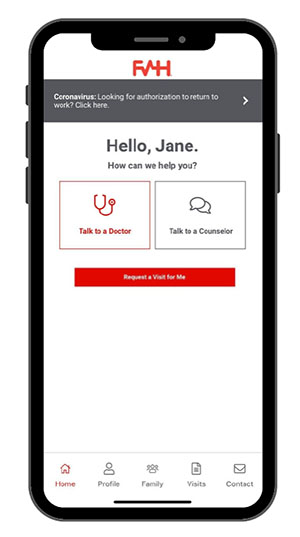Student Health Services
Our Services
- In-person services for medical
- 24/7 telemedicine and counseling through First Stop Health (FSH)
- Low-cost lab tests when ordered by the Student Health clinicians
- TB tests
- Immunizations
- Referrals
- Access to common over-the-counter medications
- First-aid
- General health questions
- Visit Other Services to view all medical, nursing, and other services offered.
Are you a student entering the Rad. Tech., CNA, VN, ADN, Pharm. Tech., EMT, Dental Assisting, or Child Development programs? You can get your required tests/screenings done here!
- Physicals
- Immunization pre reqs
- Boosters
How to Make an Appointment
Students have the option to meet with Student Health Services in-person or by telephone. Online appointments are coming soon.
Telephone or In-Person Appointment (Rancho Campus): Call for an appointment: (909) 652-6331
Telemedicine and Virtual Counseling
Chaffey College offers FREE 24/7 telemedicine and virtual counseling to all students through First Stop Health (FSH).

FSH Mobile App
- Download the First Stop Health mobile app
- Log into your account using the last 4 digits of your SSN OR with your student ID including the leading zeros
FSH Website
- Go to fshealth.com
- Click 'Log In' in the upper right
- Log into your account using the last 4 digits of your SSN OR with your student ID including the leading zeros
Contact
Rancho Cucamonga
TEMPORARILY LOCATED AT CDC-A
Hours – 8 a.m. to 4 p.m. Monday through Friday
909-652-6331
Chino
CHMB-105
Hours –9:00 a.m. to 4:00 p.m. Tuesday and Thursday
909-652-8190
Staff


